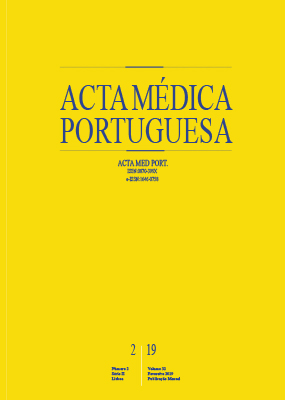Human Psittacosis: A Case Report
DOI:
https://doi.org/10.20344/amp.10079Keywords:
Birds, Chlamydophila psittaci, Pneumonia, Bacterial, PsittacosisAbstract
Psittacosis is a rare disease caused by Chlamydophila psittaci, an intracellular bacteria transmitted by contaminated birds. The clinical and radiological presentations are nonspecific. We describe a case of a 42-year-old woman, with known exposure to birds, who presented to the emergency department with one-week evolution of myalgia, polyarthritis, and respiratory symptoms. At admission, she had fever, respiratory failure, raised inflammatory markers and bilateral interstitial infiltrates at chest radiography. Considering the clinical findings and epidemiological background, we raised the hypothesis of a Chlamydophila psittaci atypical pneumonia that was serologically confirmed. Tetracyclines are the mainstay of treatment and the macrolides are an effective alternative. We highlight the importance of the epidemiological context in the early diagnosis and treatment of this infection.
Downloads
Downloads
Published
How to Cite
Issue
Section
License
All the articles published in the AMP are open access and comply with the requirements of funding agencies or academic institutions. The AMP is governed by the terms of the Creative Commons ‘Attribution – Non-Commercial Use - (CC-BY-NC)’ license, regarding the use by third parties.
It is the author’s responsibility to obtain approval for the reproduction of figures, tables, etc. from other publications.
Upon acceptance of an article for publication, the authors will be asked to complete the ICMJE “Copyright Liability and Copyright Sharing Statement “(http://www.actamedicaportuguesa.com/info/AMP-NormasPublicacao.pdf) and the “Declaration of Potential Conflicts of Interest” (http:// www.icmje.org/conflicts-of-interest). An e-mail will be sent to the corresponding author to acknowledge receipt of the manuscript.
After publication, the authors are authorised to make their articles available in repositories of their institutions of origin, as long as they always mention where they were published and according to the Creative Commons license.









